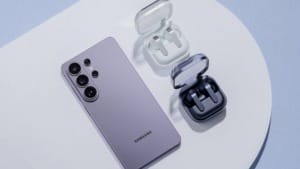Google to end support for early Nest thermostats on October 25
Google will stop supporting first—and second-generation Nest thermostats on October 25 and end new Nest launches in Europe.

You will soon notice some changes if you own one of the early Nest Learning Thermostats. Google has announced that starting October 25, it will stop supporting the first and second-generation models. These thermostats, released in 2011 and 2012, along with the version launched in Europe in 2014, will no longer receive software updates or support through the Nest and Home apps.
You will still be able to use the basic functions on your device. Adjusting the temperature and setting schedules directly on the thermostat will continue to work. However, once support ends, you will not be able to rely on the apps to manage your settings remotely.
Google said, “To fully invest in future advancements and bring you the most cutting-edge features on our latest generation of Nest thermostats, we will be transitioning away from supporting three of our oldest devices, each over a decade old.” This marks a clear shift towards focusing on newer products that offer more features and better performance.
Older Nest models will lose app support
After October 25, you cannot connect your early Nest thermostats to the Nest or Home apps. This means no more software updates, bug fixes, or remote access through your smartphone. Plan a replacement if you have been using the apps to manage your home’s heating while away.
The company has reassured users that they can still control their thermostat directly on the device. Features like setting a schedule or adjusting the temperature manually will stay available.
Google explained that focusing on newer products allows them to deliver improved services and fresh features. They believe that moving away from supporting old devices will lead to better user experiences with newer models.
No new Nest products are coming to Europe
Another important update is that Google will no longer launch new Nest thermostat models in Europe. According to the company, heating systems across Europe are very different, and each country has its own hardware and software needs. This variety makes designing products that work well in all European homes harder.
Google said, “Heating systems in Europe are unique and have various hardware and software requirements that make it challenging to build for the diverse homes.” Because of this, they have decided to stop developing new thermostat models for Europe altogether.
However, if you live in Europe, you can still buy existing Nest thermostats while stocks last. Once the current supply is sold, no new models will be introduced. If you have been thinking about getting one, this could be a good time to do so.
In short, while basic controls on early Nest thermostats will continue to work, you will lose app support and updates after October 25. And if you live in Europe, you can still find Nest thermostats, but only until the available stock runs out.
















